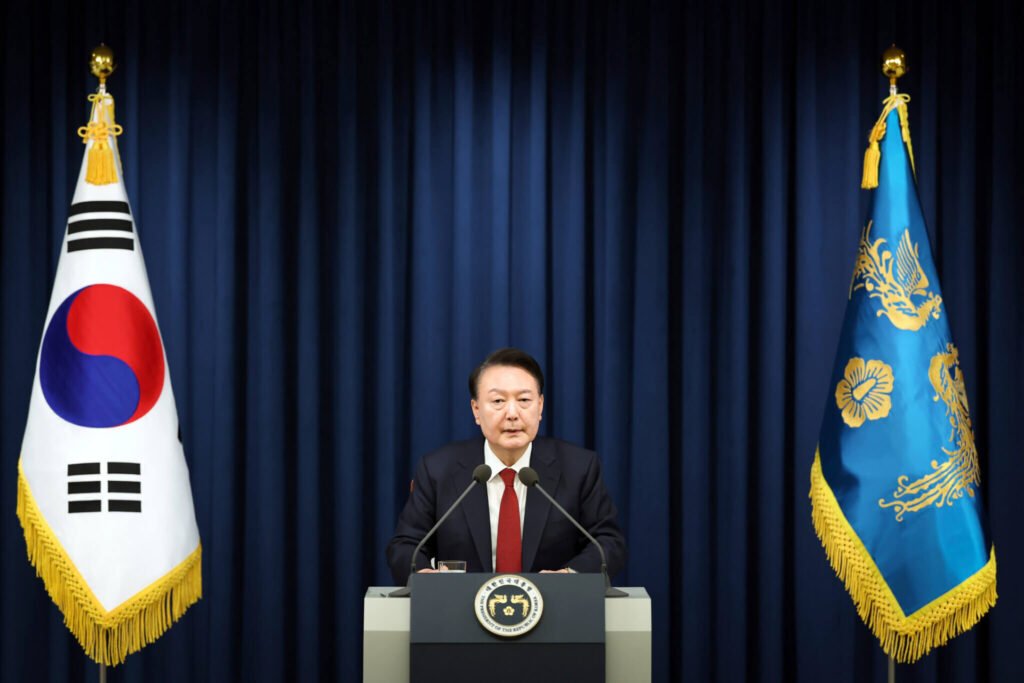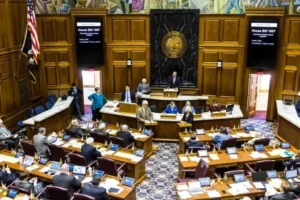The nation faces political upheaval as lawmakers prepare to vote for South Korea’s president’s impeachment. The motion is led by the opposition party because of Yoon Suk Yeol’s controversial declaration of martial law earlier this week, which he later backtracked on due to public and political pressure.
The impeachment motion requires a two-thirds majority in the National Assembly, with the opposition party needing at least eight lawmakers from the ruling People Power party to support it. According to Yoon, the declaration of martial law, the first since 1979, was intended to counter “anti-state forces” but sparked widespread criticism.
Amidst the chaos, parliamentary aides used fire extinguishers to hold back the troops and prevent interference during the parliamentary proceedings. Yoon’s actions have led to an investigation against him and his now-former defense minister, Kim Hyun, who resigned after taking full responsibility for deploying the military personnel.
This political turmoil has further eroded Yoon’s approval ratings; he wasnt famous initially. Now, it is at a historic low of 19%, with analysts predicting a further decline. Opposition lawmakers accuse Yoon of abusing power and destabilizing South Korea’s economy.
The impeachment vote will be on Saturday, and it has high stakes for both the ruling and opposition blocs. If the motion passes, the Constitutional Court will decide within 180 days whether to uphold the impeachment, transferring presidential powers to Prime Minister Han Duck-soo.
The U.S. government, surprised by Yoon’s martial law announcement, has described the situation as a “badly misjudged” decision highlighting the political instability in South Korea. The outcome of South Korea’s president’s impeachment vote will likely shape its political future.










